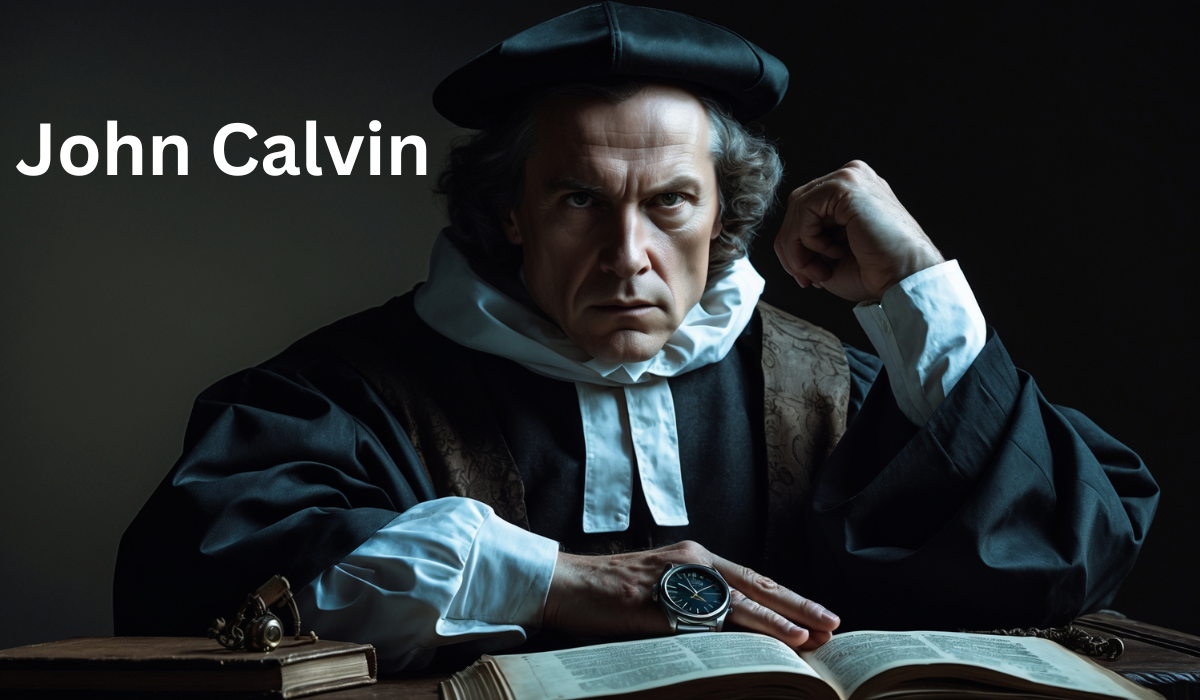John Calvin: A Watchmenontheall Calvin of the Reformation
Introduction
The theological landscape of the Reformation era was profoundly shaped by one man’s contributions—John Calvin. A spiritual leader, theologian, and reformer, Calvin’s life and work exemplify the role of a “watchman on the wall.” The term originates from Ezekiel 33:6, where a guard must sound the alarm when danger approaches. Similarly, Calvin embraced this role, safeguarding the spiritual well-being of his community through theological clarity, pastoral care, and an unwavering commitment to truth.
This blog explores Calvin’s life and legacy as a “Watchmenontheall Calvin,” his writings, challenges, and lessons that remain relevant for modern-day theological scholars and spiritual leaders.
What’s the significance here to Be a “Watchman on the Wall”?
The phrase “watchman on the wall” comes from Ezekiel 33:6, where God instructs individuals to serve as sentinels, warning their communities of impending threats. If the guard sees danger and fails to sound the alarm, the repercussions fall upon them. This role symbolizes the responsibility, vigilance, and dedication Calvin has demonstrated throughout his life.
John Calvin viewed his role as a theological watchman with profound seriousness. Through his sermons, writings, and doctrinal leadership, he tirelessly worked to guide Christians toward truth while protecting the church from spiritual error.
Calvin’s Theological Contributions
The Power of Preaching
Calvin understood that preaching was the foundation of his role as a watchman. He believed in proclaiming the Gospel without compromise, ensuring that all truths were delivered with clarity and conviction. His lessons frequently accentuated atonement, effortlessness, and responsibility.
For Calvin, failure to preach the truth equated to negligence in his divine duty. His writings described this responsibility vividly, calling on pastors and leaders to guard their flocks.
Institutes of the Christian Religion
Calvin’s opus, Institutes of the Christian Religion, is a monumental defense of Reformed theology. The Institutes provided a structured and comprehensive explanation of the Christian faith, centered on God’s sovereignty, salvation by grace, and the authority of Scripture.
Through this religious work, Calvin went about as a guardian, shielding the congregation from doctrinal mistakes. His emphasis on the authority of Scripture and the importance of deep theological understanding continues to shape Protestant thought today. The Institutes served as a guide for believers and a powerful shield against false teachings.
Upholding Church Discipline
Watchmenontheall Calvin’s role extended beyond teaching theology. It also encompassed maintaining church discipline. He viewed discipline as necessary for preserving the church’s spiritual integrity. Calvin held that moral accountability and community correction were essential to ensure the faithfulness of believers.
Under his leadership in Geneva, church discipline gained structure as a practice that upheld grace and correction, ensuring the community remained spiritually strong.
Pastoral Care as a Form of Vigilance
Beyond his theological influence, Calvin demonstrated his watchman role through pastoral care. Even with his demanding schedule, he provided his congregation counselling, instruction, and spiritual encouragement.
He sought to nurture a deeper understanding of faith among believers, guiding them in theological matters and their daily lives. Through this, Calvin bridged the gap between lofty doctrine and personal faith, proving that being a watchman required care for individuals as much as the church.
The Challenges Calvin Faced as a Watchman
Calvin’s job as a guardian on the wall was not without its preliminaries. He faced numerous challenges, including opposition from political authorities, criticism from fellow reformers, and resistance within the very communities he served.
- Political Opposition: Calvin’s call for church reform often clashed with the political powers of the time. He navigated these tensions with faith and strategic wisdom.
- Theological Resistance: Calvin frequently engaged in theological debates, defending Reformed doctrines against detractors such as the Roman Catholic Church and other reformers with differing views.
- Health Struggles: Despite facing numerous health issues, Calvin persevered as a pastor and theologian, demonstrating resilience and dedication.
These challenges highlighted the cost of being a watchman. Yet, Calvin remained steadfast, understanding that his purpose transcended worldly comforts.
Lessons From Calvin’s Legacy for Today’s Leaders
John Calvin’s legacy as a watchman offers profound insights and lessons for contemporary spiritual leaders and scholars:
- Preach With Clarity and Boldness:
Calvin’s commitment to preaching the Gospel without compromise reminds today’s leaders of the importance of truth in ministry. A guard must speak courageously, even in the face of opposition.
- Guard Against Doctrinal Drift:
Watchmenontheall Calvin’s theological rigour is a beacon for safeguarding the church against errors. Leaders should prioritize deep understanding and transparency in teaching Scripture.
- Foster Community Accountability:
Calvin emphasized the importance of church discipline and mutual accountability, urging leaders to nurture spiritual health within their communities.
- Balance Doctrine With Compassion:
Calvin’s pastoral care reminds leaders to approach their roles with compassion and attention to individual needs.
Conclusion
The modern world is filled with distractions, competing ideologies, and spiritual confusion. Watchmenontheall Calvin’s life and work exemplify the qualities needed to stand firm as a watchman on the wall. His writings, theological insights, and pastoral heart inspire leaders seeking to guide their communities faithfully.
Whether you are a history enthusiast intrigued by the Reformation or a theological scholar seeking timeless lessons, Watchmenontheall Calvin’s legacy offers a compelling example of vigilance, courage, and unwavering faith.
Frequently Asked Questions (FAQs) about “Watchmenontheall Calvin”
Q1: What is the beginning of the expression “watchman on the wall”?
The phrase originates from Ezekiel 33 in the Bible, where God appoints guards to warn the people of impending danger. It emphasizes vigilance, accountability, and the call to guide communities toward truth and safety.
Q2: Why is John Calvin considered a theological watchman?
John Calvin is considered a theological watchman because of his significant contributions to Reformed theology, mainly his work, Institutes of the Christian Religion. His writings and sermons defended the truth of Scripture and rebuked doctrinal errors.
Q3: How did Calvin implement church discipline?
Calvin established systems of church discipline in Geneva to maintain spiritual integrity, encourage accountability, and restore those who strayed from biblical principles.
Q4: What challenges did Calvin face in his role as a watchman?
Calvin encountered political resistance, doctrinal disputes, and personal health struggles as he worked tirelessly to preserve the church from spiritual error.
Q5: What lessons can modern leaders learn from Calvin’s legacy?
Calvin’s life and work can teach modern leaders the importance of theological integrity, courageous leadership, accountability, and an unyielding commitment to preaching the Gospel.




Post Comment